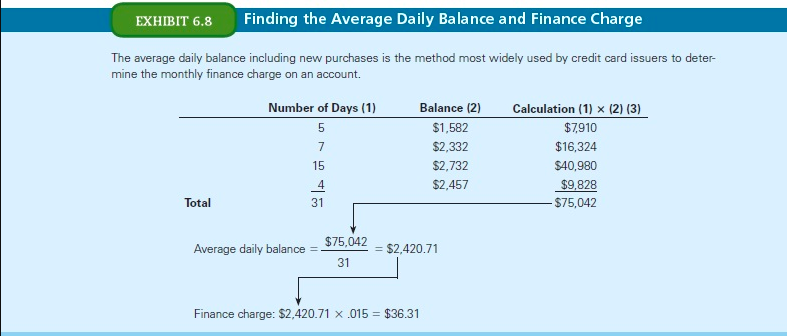50ac COMMERCIAL LAND. One floor, no next-door neighbors on top. This is a peaceful neighborhood nestled in the heart of North-Central Florida. Owner funding venice florida 2 bed room 2 bath villa house Cape Coral, Lee County, FL HOME ID: A4445-- Call Meghan: 239-963-HOME( 4663) CENTURY 21 Birchwood Realty Text 239-963-HOME( 4663) seller funding available!. Delight in the Future of Real Estate with dashboard control and expert support.
Last Updated: July 16, 2019 There are lots of advantages to an owner financing deal when acquiring a house. Both the purchaser and seller can take advantage of the offer. However there is a specific process to owner funding, along with essential factors to think about. You ought to begin by working with people who can assist you, such as an appraiser, Residential Home loan Producer, and legal representative (Why are you interested in finance).
Seller funding can be an useful tool in a tight credit market. It allows sellers to move a home much faster and get a substantial return on the investment. And purchasers might benefit from less rigid qualifying and down payment requirements, more flexible rates, and better loan terms on a home that otherwise might be out of reach. Sellers going to take on the role of investor represent only a little portion of all sellers-- usually less than 10%. That's because the offer is not without legal, monetary, and logistical difficulties. However by taking the best preventative measures and getting professional aid, sellers can lower the fundamental risks.
Instead of offering money to the buyer, the seller extends adequate credit to the purchaser for the purchase cost of the house, minus any down payment. The buyer and seller sign a promissory note (which consists of the terms of the loan). They tape-record a home mortgage (or "deed of trust" in some states) with the regional public records authority. Then the purchaser pays back the loan gradually, typically with interest. These loans are frequently brief term-- for example, amortized over thirty years however with a balloon payment due in 5 years. The theory is that, within a couple of years, the home will have acquired enough in value or the purchasers' financial scenario will have improved enough that they can refinance with a traditional loan provider.
In addition, sellers do not want to be exposed to the risks of extending credit longer than essential. A seller is in the very best position to provide a seller financing offer when the house is free and clear of a home mortgage-- that is, when the seller's own mortgage is settled or can, at least, be settled utilizing the buyer's deposit. If the seller still has a large home mortgage on the property, the seller's existing lender must accept the transaction. In a tight credit market, risk-averse loan providers are seldom ready to take on that additional danger. Here's a peek at a few of the most typical kinds of seller financing.
In today's market, loan providers hesitate to fund more than 80% of a home's value. Sellers can potentially extend credit to purchasers to make up the distinction: The seller can bring a tricked wife 2nd or "junior" mortgage for the balance of the purchase price, less any down payment. In this case, the seller immediately gets the profits from the first home mortgage from the buyer's very first mortgage lender. However, the seller's risk in carrying a 2nd mortgage is that she or he accepts a lower priority should the debtor default. In a foreclosure or foreclosure, the seller's second, or junior, home loan is paid only after the first home mortgage lending institution is paid off and just if there are enough profits from the sale.
What Does What Does Eps Stand For In Finance Mean?

Land contracts don't pass title to the buyer, but offer the purchaser "equitable title," a momentarily shared ownership. The purchaser pays to the seller and, after the last payment, the purchaser gets the deed. The seller rents the residential or commercial property to the purchaser for a contracted term, like a common rental-- except that the seller likewise concurs, in return for an upfront cost, to sell the Visit this link home to the buyer within some defined time in the future, at agreed-upon terms (potentially consisting of rate). Some or all of the rental payments can be credited versus the purchase rate. Various variations exist on lease choices.
Some FHA and VA loans, in addition to standard adjustable mortgage rate (ARM) loans, are assumable-- with the bank's approval - How long can you finance a camper. Both the purchaser and seller will likely require an attorney or a genuine estate agent-- perhaps both-- or some other certified expert skilled in seller financing and house deals to compose up the agreement for the sale of the residential or commercial property, the promissory note, and any other required paperwork. In addition, reporting and paying taxes on a seller-financed offer can be made complex. The seller may need a financial or tax specialist to supply advice and assistance. Lots of sellers are hesitant to underwrite a mortgage because they fear that the buyer will default (that is, not make the loan payments).
A good expert can help the seller do the following: The seller must firmly insist that the purchaser complete a comprehensive loan application, and completely validate all of the details the buyer supplies there. That consists of running a credit check and vetting work, properties, monetary claims, references, and other background info and documentation. The written sales agreement-- which specifies the terms of the deal along with the loan quantity, interest rate, and term-- need to be made contingent upon the seller's approval of the purchaser's financial circumstance. The loan must be secured by the property so the seller (loan provider) can foreclose if the purchaser defaults.
Institutional lending institutions request deposits Go to this site to provide themselves a cushion versus the threat of losing the financial investment. It also provides the buyer a stake in the residential or commercial property and makes them less most likely to walk away at the first sign of financial difficulty. Sellers must do also and collect a minimum of 10% of the purchase cost. Otherwise, in a soft and falling market, foreclosure could leave the seller with a house that can't be offered to cover all the costs. Just like a traditional home mortgage, seller financing is flexible. To come up with a rates of interest, compare present rates that are not specific to private loan providers.

Bank, Rate.com and www. HSH.com-- look for everyday and weekly rates in the location of the residential or commercial property, not national rates. Be prepared to provide a competitive rates of interest, low preliminary payments, and other concessions to lure buyers. Since sellers generally don't charge buyers points (each point is 1% of the loan quantity), commissions, yield spread premiums, or other home loan costs, they often can manage to give a purchaser a much better funding offer than the bank. They can also use less rigid certifying requirements and deposit allowances. That doesn't mean the seller should or ought to acquiesce a purchaser's every impulse.